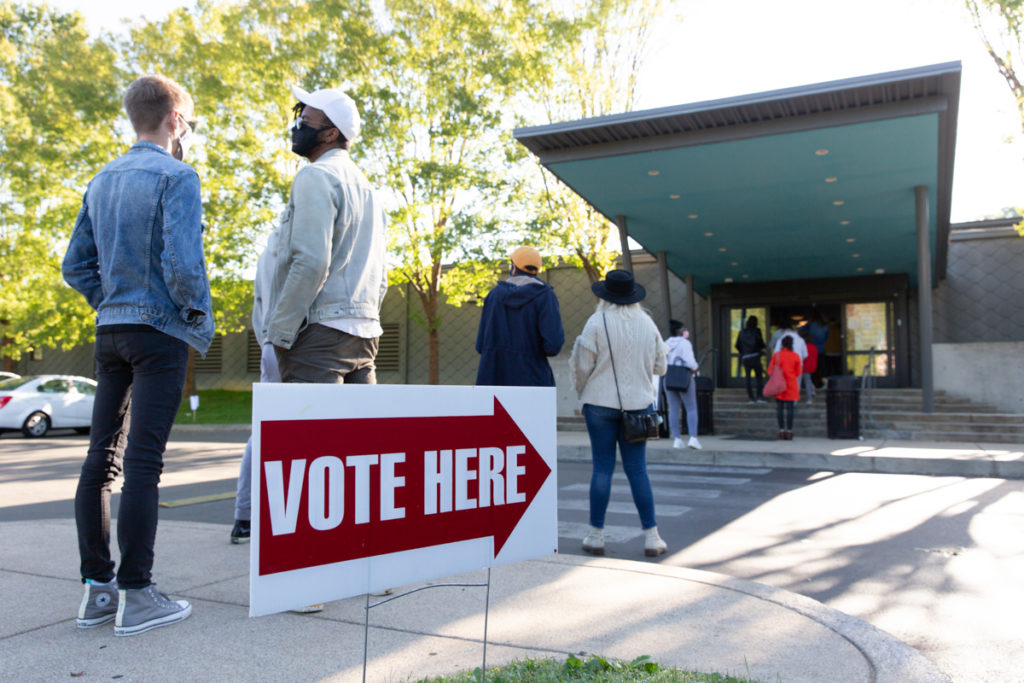
The NAACP has sued the state of Tennessee to challenge its voting laws. They argue it’s too difficult for residents who have been convicted of a felony to get their voting rights back.
“The implementation failures of the rights restoration process create an unequal, scattershot system across Tennessee’s 95 counties, causing disparate results for similarly situated individuals, in violation of the Equal Protection Clause,” the civil rights organization wrote in a lawsuit filed last week on behalf of five people who have been unable to register to vote after serving their felony sentences.
Tennessee has some of the strictest rules in the country when it comes to voting rights for those convicted of felonies. State law requires people with felonies on their record to complete their sentence and pay off all court costs, including fines, restitution and child support payments. Then, they need a signed certificate to allow them to vote.
But the NAACP says many Tennesseans face multiple barriers when they try to get their paperwork filled out, and they say that violates their constitutional rights.
The lawsuit claims Tennessee’s process for restoring voting rights is “unequal, inaccessible, opaque, and error-ridden.” The NAACP says many people struggle to get their certificate signed because of inconsistencies in state protocols.
The suit alleges that some people “embark on what is often a wild-goose chase” to find a local official willing to complete their paperwork. Others, the NAACP says, are turned away with no explanation or a way to appeal the decision.
The group asks the state to update its procedures, to ensure that Tennesseans are not wrongfully barred from voting.
The lawsuit follows a recent national report, which found that Tennessee has the second-highest rate of disenfranchisement for people with felony convictions, and the highest for Latinos. More than 450,000 Tennesseans — about one in 11 residents of voting age — are unable to vote. For Black residents, the rate is about one in five.
The governor’s office says it will review the lawsuit but cannot comment on pending litigation. The Department of Correction also declined to comment. The Secretary of State’s office referred all questions to the attorney general. His office also declined to comment.
This story was updated to include a response from the attorney general’s office.
Samantha Max is a Report for America corps member.

